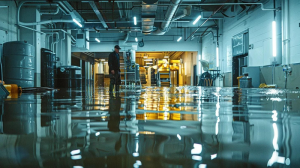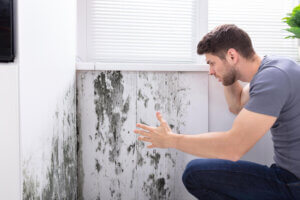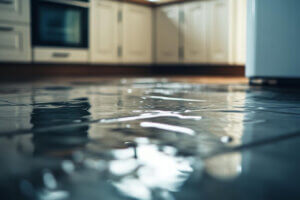Household water damage can be both costly and disruptive, causing significant harm to your property and belongings. Identifying the common causes of water damage is crucial for taking preventive measures to protect your home. From leaking pipes to faulty appliances, understanding where problems can arise helps you stay ahead of potential disasters.
Alongside leaking pipes, faulty appliances like dishwashers, washing machines, and water heaters are common culprits of household water damage. These appliances can malfunction or develop leaks, leading to unexpected water damage in your home. Keeping a close eye on the condition and maintenance of household appliances is essential to avoid such problems.
Ensuring that your gutters and drainage systems are functioning correctly is crucial to prevent water from pooling and causing damage to your property. By being aware of these common causes, you can take steps to protect your home from water damage effectively.
Leaking Pipes and Faucets
Leaking pipes and faucets are one of the most common causes of household water damage. Even a tiny drip can lead to significant problems over time, including mold growth, warped floors, and damaged walls. Regularly inspecting your pipes for signs of leaks can help you catch these issues early.
One way to detect leaking pipes is by looking for water stains on ceilings, walls, or floors. Another indicator is an unexplained increase in your water bill, which can signal that water is escaping somewhere in your plumbing system. Fixing these leaks can be as simple as tightening a loose joint or replacing a worn-out washer, but sometimes, it might require professional help to ensure the problem is resolved thoroughly.
Frozen pipes are another situation that can cause leaks and water damage. When water inside pipes freezes, it expands, putting pressure on the pipes, which can cause them to burst. To prevent this, insulate pipes in cold areas of your home and let faucets drip during extreme cold to keep water moving.
Faulty Appliances
Household appliances like dishwashers, washing machines, and water heaters are also significant sources of water damage. Over time, wear and tear can cause these appliances to malfunction, leading to leaks or even floods. Regular maintenance of these appliances is crucial to avoid unexpected water damage.
For example, checking the hoses on your washing machine for cracks or bulges can prevent leaks. Replacing these hoses periodically, ideally every five years, can reduce the risk of sudden failures. Similarly, inspecting the area around your dishwasher and water heater for signs of leaks can alert you to issues before they become severe.
Also, water heaters can develop leaks as they age, often due to corrosion. It’s advisable to replace your water heater every 8 to 12 years, depending on the model and usage. Installing a water alarm can also be a good idea; these devices detect leaks and alert you before significant damage occurs. By staying vigilant and performing regular checks on your appliances, you can avoid the headache and expense of water damage in your home.
Roof Leaks and Weather Impact
Roof leaks are common causes of water damage in homes. Weather conditions like heavy rain, snow, and wind play a significant role in exacerbating these problems. Over time, exposure to these elements can damage roofing materials, causing leaks that allow water to seep into your home. Regular roof inspections are vital in catching potential problems early.
Signs of roof leaks include damp spots on ceilings, water stains, and mold growth in the attic. If you see shingles that are cracked, curled, or missing, it’s a good indication that your roof needs attention. Addressing these issues promptly can prevent further water damage and extend the life of your roof.
Additionally, it’s essential to check and maintain other roof elements, such as flashing and gutters. Flashing, which is used to seal roof joints and edges, can deteriorate over time. Ensuring that it is intact helps prevent water from infiltrating your home. Gutters, on the other hand, should be kept clean and in good repair to facilitate proper water drainage away from the roof.
Poor Drainage and Clogged Gutters
Poor drainage and clogged gutters are common yet preventable causes of household water damage. When gutters are clogged with leaves, dirt, or debris, they can’t direct water away from your home’s foundation effectively. This can cause water to pool around the foundation, leading to basement flooding and structural damage.
To prevent clogs, regularly clean your gutters and downspouts. Installing gutter guards can also help reduce the amount of debris entering the gutters. During your maintenance checks, ensure that the downspouts are directing water at least several feet away from the house. This helps to keep water from accumulating near the foundation.
Apart from gutters, the landscape around your home plays a crucial role in preventing water damage. Ensure that the ground slopes away from the house. Proper grading can help direct runoff water away, reducing the risk of water pooling and seeping into the basement. Regular maintenance of the drainage system and vigilant monitoring of changes in the landscape can go a long way in preventing water damage.
Conclusion
Understanding the common causes of household water damage is the first step in preventing it. Leaking pipes and faucets, faulty appliances, roof leaks, and poor drainage, all pose significant risks to your home. Regular inspection and maintenance are crucial in detecting and addressing these issues early to prevent extensive damage.
Taking steps to ensure your plumbing is in good shape, keeping appliances well-maintained, and inspecting your roof and gutters can save you from costly repairs and provide peace of mind. Being proactive about these potential problems can protect your home and keep it safe for you and your family.
If you encounter water damage despite your best efforts, prompt action is essential. Contact Premier Emergency Water Removal for professional help. Our team is equipped to handle all kinds of flood water damage restoration and water removal needs. Reach out to us today to safeguard your home from water damage threats.



